11 Supplements That Dietitians Actually Take
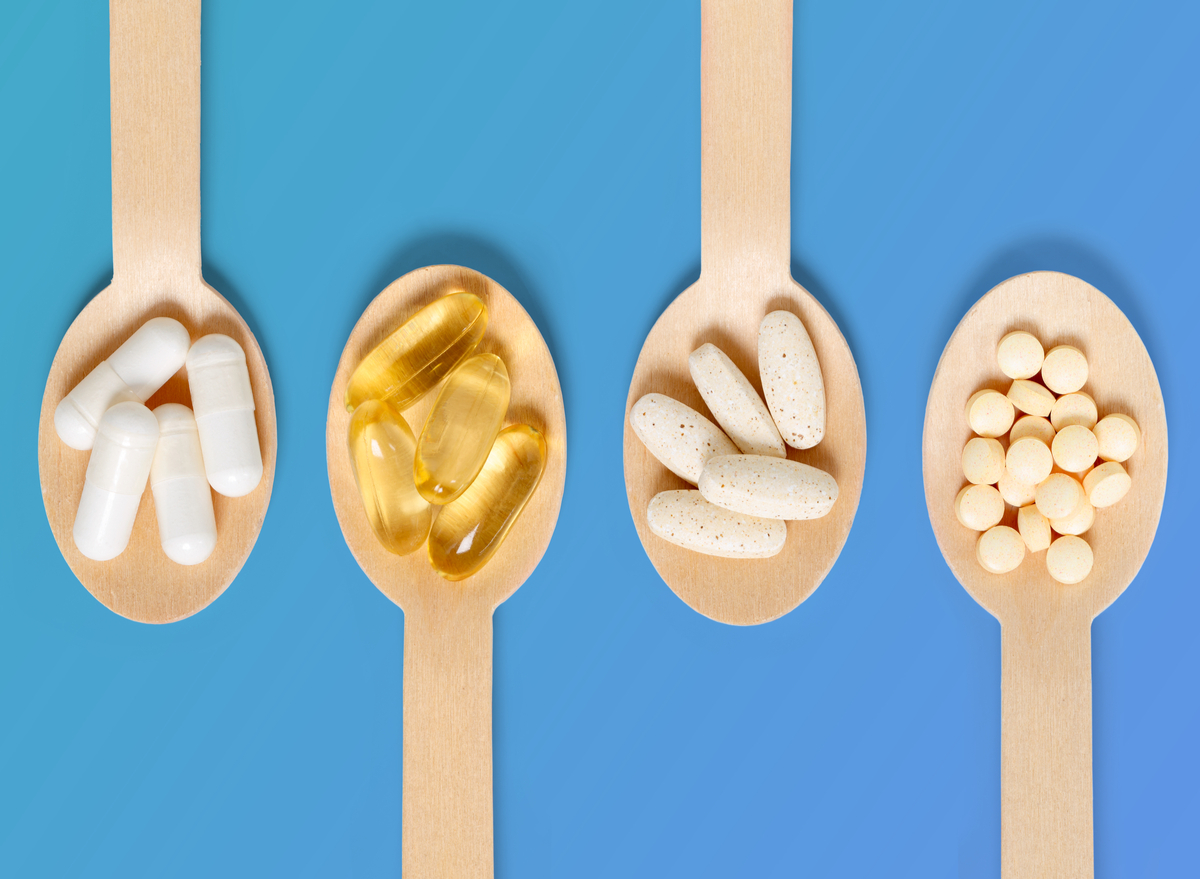
Dietitians typically have a “food-first” approach when they are working with clients to help them achieve a health goal, only looking to supplements to, well, supplement a diet. They understand that supplements are not a substitute for a balanced diet, and they are certainly not the cure-all that many marketers may lead us to believe.
However, supplements can certainly play an important part in a person’s wellness journey, especially when an individual’s unique needs are taken into account. Dietitians understand this notion so well that, among the sea of supplement choices out there, there is a handful that they actually take themselves.
If you have ever wondered which pills registered dietitians make a habit of popping to supplement their diets, keep reading to take a peek behind the curtain.
Magnesium
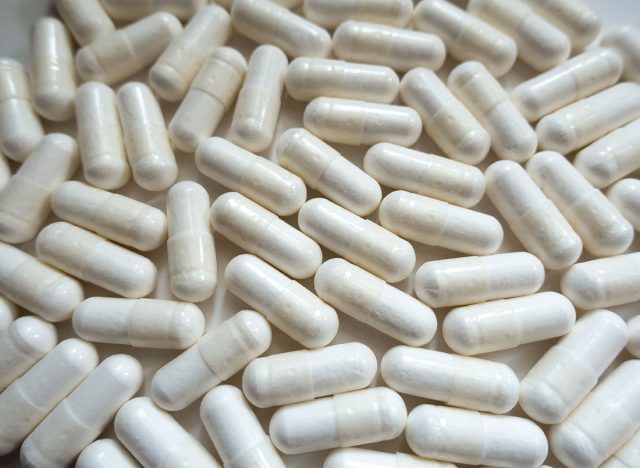
Magnesium is a mineral that supports bone health, brain health, and more. Nutritionist Sarah Garone, NDTR, of A Love Letter to Food, shared that she “finds that it helps with giving me deeper sleep and bringing down my stress levels”
Garone uses Envycure’s gummy blend, which “features eight forms of magnesium, plus ashwagandha, vitamin D, and vitamin B12. It also tastes great, which helps me be diligent about taking it every day.”
Omega-3s
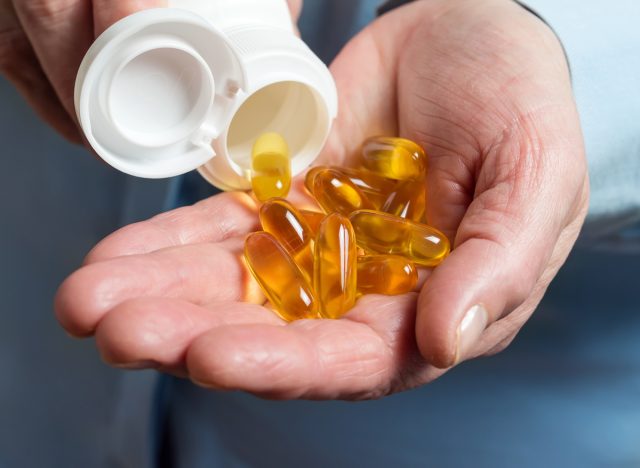
Fish is one of the best sources of DHA and EPA omega-3 fatty acids. But unfortunately, most Americans are not consuming the recommended amount of these foods regularly.
Elana Natker, RD, a nutrition communications consultant, shared that while she loves to eat fish, her family doesn’t share the same sentiment, which results in her occasionally skipping this protein source. She recognizes that she still needs “the EPA and DHA omega-3s that you get from fish, which are good for my heart, brain, and eye health, so I take a fish oil pill. I’m not picky about what I take—as long as it gives me approximately 750-1000 mg of EPA+DHA omega-3s per serving, I’m good,” she shares.
One high-quality DHA and EPA supplement choice is Life Extension Mega EPA/DHA.
Choline
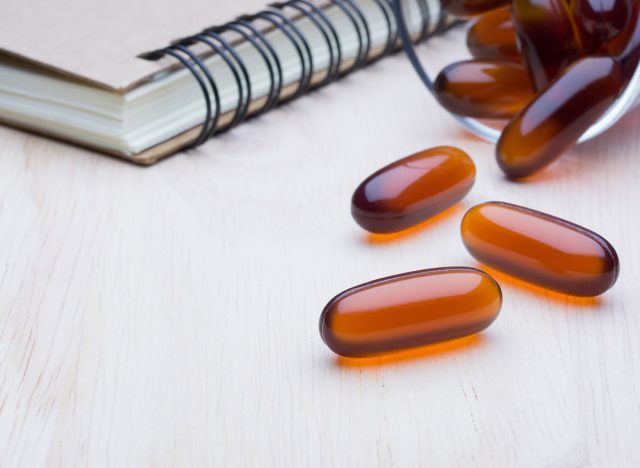
“I take choline every day to help bridge the gaps between what I need and the amount that I get from food. Choline is an essential nutrient, but up to 90% of us aren’t getting enough! It’s critical for heart health, cognition, healthy liver function, and for fetal brain development, so it’s recently become a part of my routine to make sure I’m getting what I need each day,” says Jaclyn London, MS, RD, CDN, registered dietitian and author of Dressing on the Side (and Other Diet Myths Debunked): 11 Science-Based Ways to Eat More, Stress Less, and Feel Great about Your Body.
She chooses a choline supplement from Life Extension, “which is easily the brand I trust most for their quality supplement products.”
Creatine Monohydrate
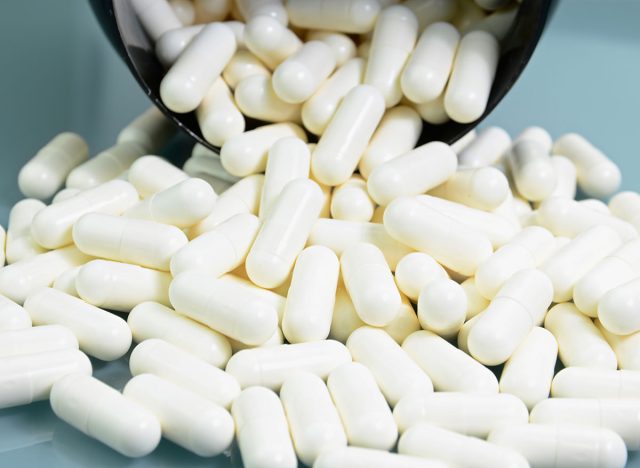
Creatine is a chemical that is naturally produced in the body. And some research shows its positive role in “balancing mood and enhancing cognition, as well as some promise in the area of bone health,” Elizabeth Shaw, MS, RDN, CPT, nutrition expert and author of the Air Fryer Cookbook For Dummies and the Instant Pot Cookbook For Dummies shared.
Shaw explained that “while more longitudinal studies are certainly needed, there’s very low risk to adding a small amount of creatine, or about 5 grams (1 teaspoon), to your smoothie to reap these potential benefits.”
She likes NOW® Sports Creatine Monohydrate Powder “because it’s third-party tested, and you can rest assured what’s on the label is in the bottle.”
Vitamin D
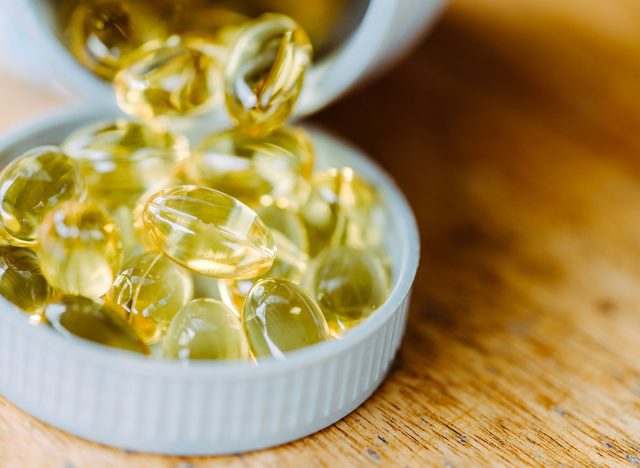
Also known as the “sunshine vitamin,” vitamin D is an important nutrient that supports many aspects of our health, including our bone health.
And this nutrient in supplement form is a must for Toby Amidor, MS, RD, CDN, FAND, award-winning nutrition expert and partner with NOW Foods. “During my annual visit to my physician, my doctor pointed out that my vitamin D levels have been low for several years,” says Amidor. “As such, I started taking a vitamin D supplement to boost it up.” Amidor adds that “vitamin D is an under-consumed nutrient by most Americans.”
When it comes to her favorite vitamin D brand, Amidor says she takes “NOW Vitamin D-3 1000 IU Softgels—soft gel per day with a meal. Vitamin D helps maintain strong bones and also helps support my immune system,” she continues. “This product also has a GMP certification which means that every aspect of the manufacturing process has been examined, including the laboratory and testing methods.”
Quercetin
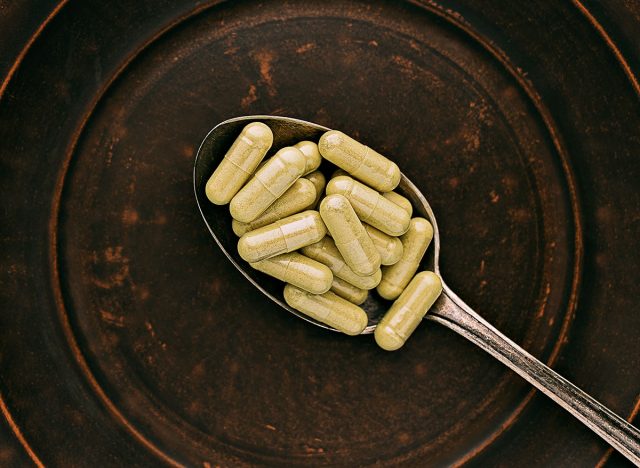
“Quercetin is a compound found naturally in foods like onions and apples, and it can help stabilize mast cells, which may help reduce allergy symptoms,” explains Azzaro. She adds that it is also anti-inflammatory and an antioxidant, which “contributes to its allergy-relieving properties.”
Azzaro opts for the Designs for Health Quercetin + Nettles blend for allergy season “because it combines quercetin with nettles, another allergy- and inflammation fighter.”
Lutein
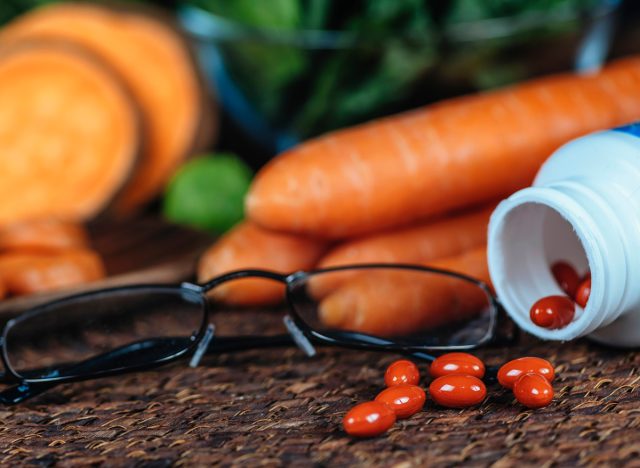
Lutein is a carotenoid found in a variety of colorful foods, including egg yolks, spinach, and pistachios. Adequate lutein intake is linked to supporting eye health—perfect for people who are staring at screens all day. (Yes, scrolling through Instagram counts.) Additionally, this nutrient can help support brain health.
Taking a lutein supplement that also contains DHA and choline, like what is found in Brainiac Brain Packs, helps fuel the brain and the eyes with key nutrients that many of us are not consuming enough of. And unlike some other gummies on the market, these are free from any artificial colors or flavors.
Astaxanthin
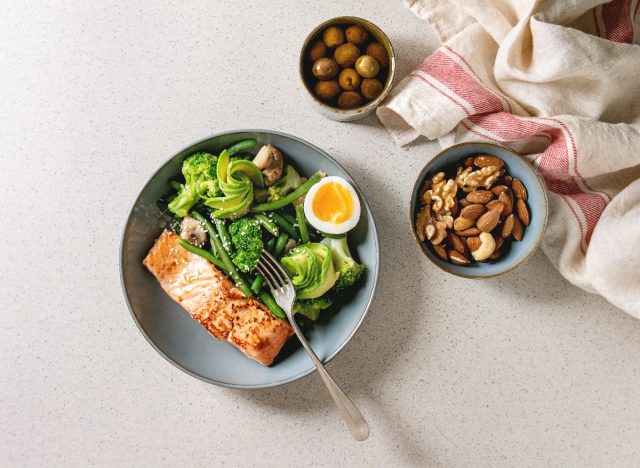
Astaxanthin is a natural pigment carotenoid that has antioxidant and anti-inflammatory activity. Found in foods like shrimp and salmon (which are pink when cooked), this compound is linked to positive effects on skin health. Some data shows that long-term prophylactic astaxanthin supplementation may help combat age-related skin deterioration may protect the skin against environmental factors, like UV light.
Life Extension Astaxanthin is a quality option for including this ocean-sourced nutrient.
Elderberry
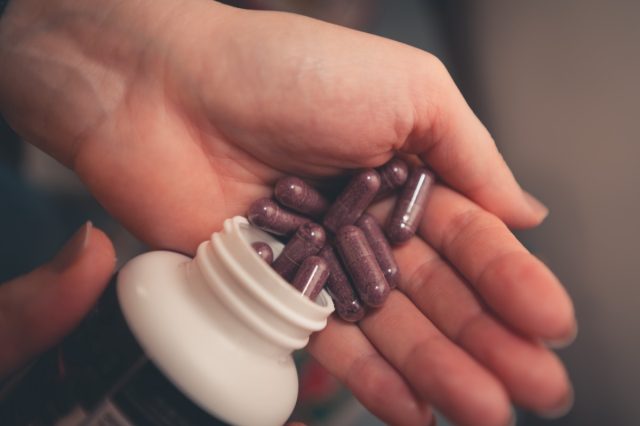
“I take elderberry, an herbal supplement every day to support my immune system,” says Melissa Mitri, MS, RD, nutrition writer and owner of Melissa Mitri Nutrition. “Some research shows elderberries may support a healthy immune system and shorten the duration of respiratory viruses and the flu,” she explained.
Her go-to elderberry choice is Nature’s Way Sambucus Elderberry gummies.
Beetroot powder or juice
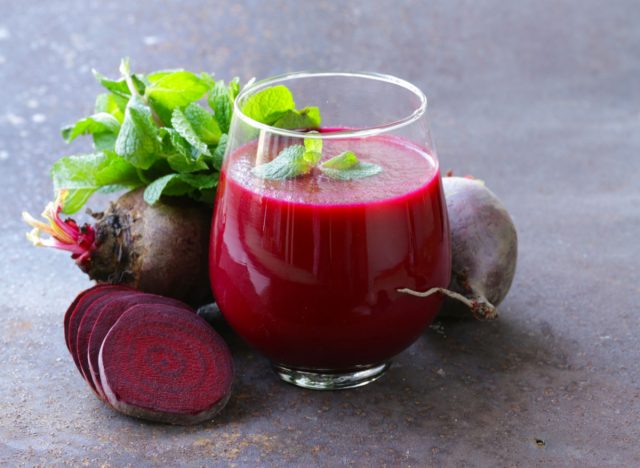
Before getting ready for a long run, Chrissy Carroll, MPH, RD, LDN, ACSM-cPT, USAT, Level I triathlon coach, RRCA-certified running coach, and blogger at Snacking in Sneakers, likes to add beet juice shots or powders to her pre-workout regimen. “Beets are rich in dietary nitrates, which can lead to vasodilation of the blood vessels. In other words, they help open up those blood vessels and allow more blood to flow to your muscles,” says Carroll.
A systematic review found that beet juice supplementation can improve exercise efficiency and increase time to exhaustion at submaximal intensities. Carroll prefers “concentrated beet juice shots, but beetroot powders may also be an option to blend into pre-workout smoothies.” When it comes to which beetroot product Carroll finds herself reaching for, she turns to Beet It shots for a boost of beet.
CoQ10
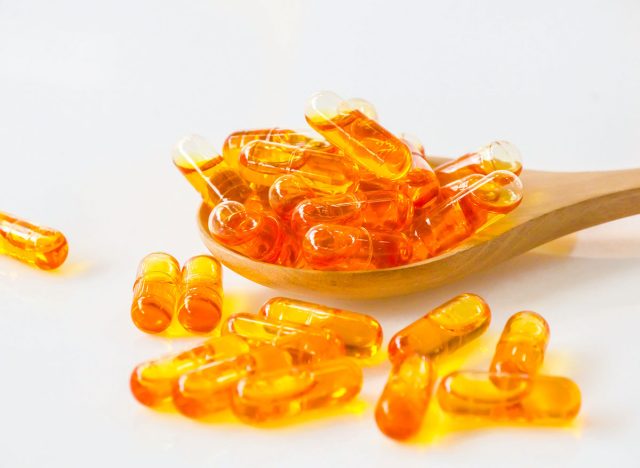
CoQ10 is a coenzyme that “helps support mitochondrial function (energy production in your cells), and it is a potent antioxidant,” shares Melissa Azzaro, RDN, LD, creator of The Hormone Dietitian® LLC. Azzaro says she takes this supplement daily to help her feel more energized, “especially keeping afternoon energy levels stable.”
Azzaro noted that “CoQ10 comes in two forms,” advises Azzaro. “The ubiquinol is the form better used by the body than ubiquinone.”









